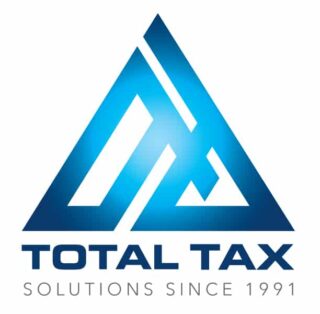3 Common Mistakes That Result in Tax Resolution Failures
Running a successful small business is rewarding, but it comes with financial responsibilities—including keeping up with tax obligations. Unfortunately, many business owners find themselves facing back taxes due to oversight, miscalculations, or financial setbacks. When trying to resolve tax issues, they often make critical mistakes that only worsen the situation.
If you’re dealing with back taxes, avoiding these common pitfalls can make the difference between a smooth resolution and an ongoing financial headache. Below are three of the biggest mistakes small business owners make when attempting to resolve their tax issues.
Mistake #1: Under-reporting Income
One of the most common issues small business owners face when resolving tax problems is underreported income. Whether intentional or accidental, failing to report all business revenue can lead to severe consequences, including additional tax assessments, penalties, and potential audits.
How it Happens:
- Relying on bank deposits instead of proper accounting to track income
- Failing to report cash payments or peer-to-peer transactions
- Misclassifying revenue as non-taxable income
- Forgetting about income reported on 1099 forms
Many business owners assume that if they don’t receive a tax form for certain income, it doesn’t need to be reported. However, the IRS cross-checks income from various sources, and discrepancies can trigger audits or additional tax bills.
How to Avoid This Tax Resolution Failure:
- Maintain accurate bookkeeping records and reconcile accounts regularly
- Use accounting software or work with a tax professional to track all income sources
- Ensure all reported income matches IRS records, including 1099 forms
If the IRS discovers underreported income while you’re trying to resolve back taxes, it can significantly increase the amount you owe, making resolution more difficult.
Mistake #2: Claiming Disallowed Deductions
Another frequent error in tax resolution is claiming deductions that are either ineligible or improperly documented. Business owners often overestimate what they can deduct or fail to keep the necessary records to support their deductions.
Common Deduction Errors:
- Claiming personal expenses as business deductions
- Deducting expenses without proper documentation
- Overstating travel, meals, or home office expenses
- Misclassifying employees as independent contractors to avoid payroll taxes
The IRS scrutinizes deductions during audits, and disallowed deductions can increase your tax liability, leading to even greater financial strain.
How to Avoid This Tax Resolution Failure:
- Keep detailed records and receipts for all business expenses
- Ensure deductions are legitimate and directly related to business operations
- Follow IRS guidelines on travel, meals, and home office deductions
- Consult with a tax expert to confirm eligibility before claiming a deduction
Failing to properly document deductions can cause the IRS to disallow them, increasing the total amount you owe and potentially leading to additional penalties.
Mistake #3: Neglecting Estimated Tax Payments
For small business owners, managing tax payments can be challenging—especially when dealing with back taxes. A major mistake that compounds tax resolution issues is failing to make estimated tax payments while trying to settle past debts. Many business owners focus entirely on clearing their back taxes but overlook the importance of staying current on their ongoing tax obligations.
Why Estimated Tax Payments Matter:
Unlike employees who have taxes withheld from their paychecks, business owners must make estimated tax payments throughout the year. The IRS requires quarterly tax payments to cover income tax and self-employment tax. Failure to make these payments can result in additional penalties and an ever-growing tax balance.
How This Mistake Worsens Tax Issues:
- Missing estimated payments creates new tax debt while trying to resolve old debt
- The IRS may reject installment agreements if you continue falling behind
- Additional penalties and interest make it harder to get back on track
- It signals poor financial management, potentially triggering audits
Many business owners think they can wait until the end of the year to pay their taxes, but this approach can lead to cash flow issues and penalties.
How to Avoid This Tax Resolution Failure:
- Calculate and pay estimated taxes quarterly based on projected income
- Set aside tax money from revenue regularly to avoid last-minute shortfalls
- Use accounting software or hire a tax professional to track and manage payments
- Stick to IRS deadlines (April 15, June 15, September 15, and January 15)
By keeping up with estimated tax payments, you demonstrate financial responsibility and improve your chances of successfully resolving back taxes.
How to Fix Tax Resolution Failures Before It’s Too Late
If you’ve made one or more of these tax resolution mistakes, don’t panic—but don’t ignore them either. The longer you wait to correct these errors, the more penalties and interest will accrue. Here’s how to take action now:
- Review your financial records to ensure accurate income reporting
- Work with a tax professional to verify your deductions and avoid costly errors
- Start making estimated tax payments immediately to stay compliant
- Communicate with the IRS or state tax agency if you need to correct past mistakes
Trying to resolve back taxes without professional guidance can be overwhelming and costly. Tax laws are complex, and small errors can lead to bigger problems. Working with a trusted tax resolution expert—such as Total Tax, Inc.—can help you navigate the process efficiently and avoid common pitfalls.
Small business owners who owe back taxes often rush to resolve the issue without fully understanding the implications of their actions. Underreported income, disallowed deductions, and neglected estimated tax payments are three of the most common mistakes that can lead to greater financial trouble. By proactively addressing these issues, keeping accurate records, and consulting with tax professionals, business owners can successfully resolve back taxes and avoid future tax problems.
If you’re struggling with back taxes, now is the time to take control. The sooner you correct these mistakes, the easier it will be to get back on solid financial ground and keep your business running smoothly.



